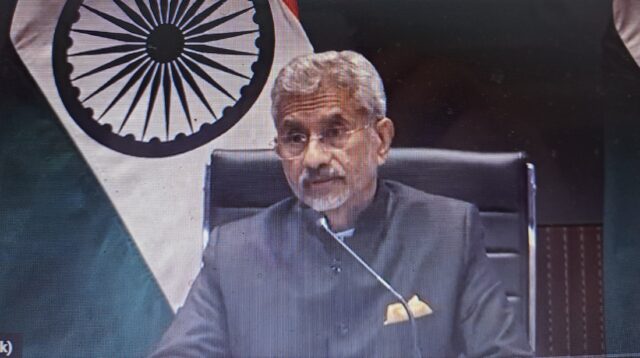NEW DELHI: External Affairs Minister S Jaishankar stated on Thursday that the Russia-Ukraine conflict had prevented member nations at the G20 foreign ministers from releasing a joint communique. Speaking at a media briefing, the minister stated that while member nations were able to agree on a majority of the issues discussed, the division of opinions on the Ukraine conflict prevented the meeting from being a “perfect meeting.”
“There were a large number of issues which were agreed by the members, like multilateralism, gender issues, counter- terrorism and counter narcotics etc…I don’t want to put a percent on it. The bulk of the issues concerning the Global South were agreed to in the outcome document…If we had a perfect meeting it would have been a collective statement but there were issues regarding the Ukraine conflict.”
Coming to China, the minister who met with China’s Foreign Minister Qin Gang earlier in the day stated that the focus of the meeting was on the challenges facing the India-China relationship. Describing the current state of the relationship as “abnormal” the minister stated India had once again reiterated its concerns to China regarding the situation on the LAC.
“There are real problems with the relationship that need to be looked at and discussed very candidly and openly. We had a brief discussion on what was happening in the G20 framework but the thrust of the meeting was on the bilateral relationship and the challenges of the bilateral relationship especially that of peace and tranquillity in the border areas,” said Jaishankar.
On Beijing’s side, a foreign ministry spokesperson Mao Ning said prior to the meeting between the foreign ministers that “China values its relations with India. China and India are ancient civilizations and both have more than one billion people. We are neighbours and are both emerging economies. A sound China-India relationship meets the fundamental interests of both countries and peoples.”
Both Russia and China had declined to sign the document ensuring that it did not become a joint statement but a chair’s summary. The offending paragraphs which both nations had objected to were in clauses 3 and 4 pertaining to the Ukraine war while all other clauses had been agreed to by the member nations. Clause 4 stated a need to focus on upholding “international law and the multilateral system that safeguards peace and stability” and added that “the use or threat of use of nuclear weapons is inadmissible. Today’s era must not be that of war.”
India however had voiced its misgivings that multilateralism and the current international order had been effective in preventing conflict. Speaking earlier in the day Prime Minister Modi stated that post-WWII global governance had failed to foster “international cooperation” on issues of common interest. Echoing the Prime Minister, Jaishankar stated, “Multilateralism is a crisis in terms of preventing future wars and fostering international cooperation today. In these two primary tasks, it has failed.”
















